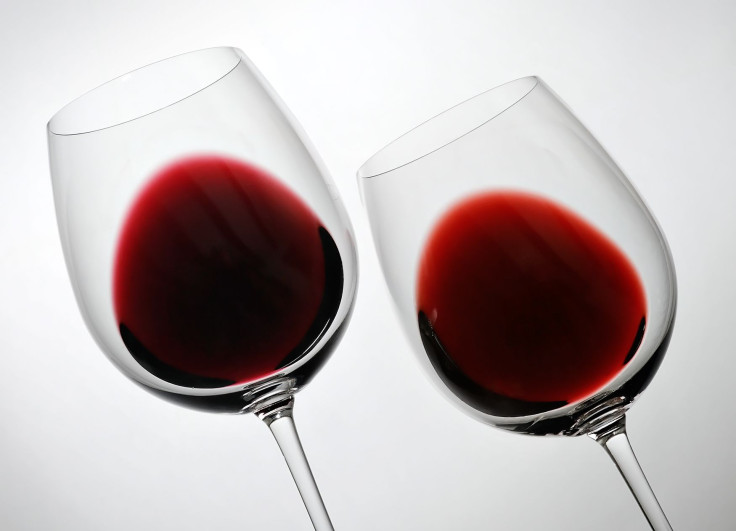New Study Shows Red Wine, Dark Chocolate, Won't Stave Off Heart Disease

In a shocking new twist, scientists have discovered that red wine and dark chocolate don’t actually help people live longer or lower risks of heart disease and cancer. Despite a few years' worth of studies and a $30 million supplement industry, it turns out that resveratrol, the antioxidant commonly found in these foods, isn’t responsible for any of those health benefits.
“The story of resveratrol turns out to be another case where you get a lot of hype about health benefits that doesn’t stand the test of time,” said study author Dr. Richard Semba, professor at Johns Hopkins University School of Medicine, to Genetic Engineering & Biotechnology News.
“The thinking was that certain foods are good for you because they contain resveratrol. We didn’t find that at all,” he said.
For the study, published in the JAMA Internal Medicine journal on Monday, Semba and other researchers observed nearly 800 seniors in the Chianti region of Italy for almost a decade, measuring the level of resveratrol in their system and how it related to their health. Some died, some didn’t. Some had heart problems, while others remained healthy.
Detailed statistical analysis showed that there was no relation between the amount of the compound in their bodies with the reported health benefits of red wine and dark chocolate.
“The antioxidant resveratrol found in red wine, chocolate and grapes was not associated with longevity or the incidence of cardiovascular disease, cancer and inflammation,” reads the study.
Of course, the benefits aren’t nonexistent, but doctors still can’t figure out just what it is. But they do know for sure that a glass of red wine once in a while, especially as part of a typical Western diet, is no real safeguard against cancer or heart disease.
Semba’s research is the latest in a long line of studies examining the health benefits of some of the world’s favorite vice foods. The so-called “French Paradox” has flummoxed scientists for years. They didn’t understand why certain populations could consume high-cholesterol diets while avoiding heart disease. It’s been tough to study definitively since resveratrol tends to leave the body quickly, and is hard to trace.
This new data could put an entire industry in jeopardy, since many Americans decided to skip the wine and get straight to the antioxidants, spending $30 million a year on resveratrol supplements, according to the L.A. Times.
But don’t drop the vino just yet. As part of a 2013 study of the Mediterranean diet, the Guardian reported that Spanish researchers found that people who drank five to seven glasses of wine every week were less prone to depression than nondrinkers.
So it turns out a glass of wine per day may not help you live longer, but it can cheer you up about it.
© Copyright IBTimes 2024. All rights reserved.






















